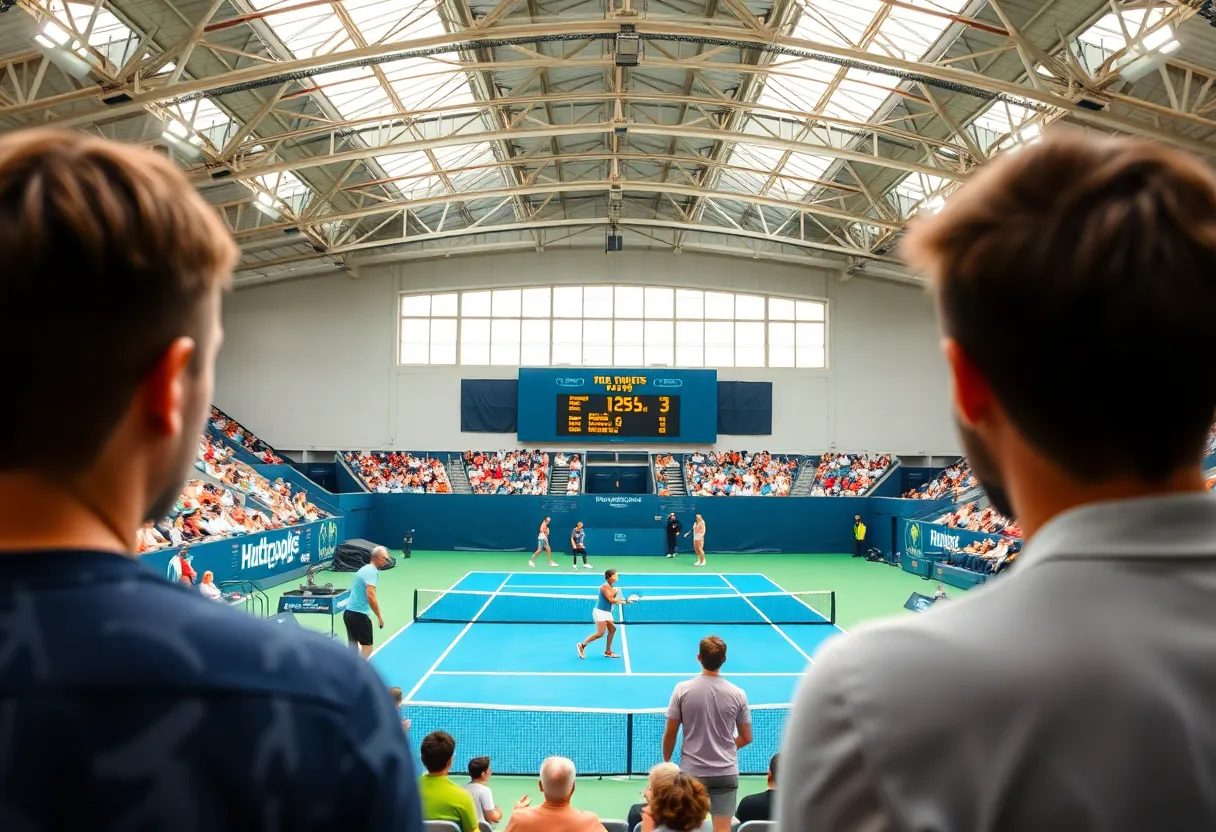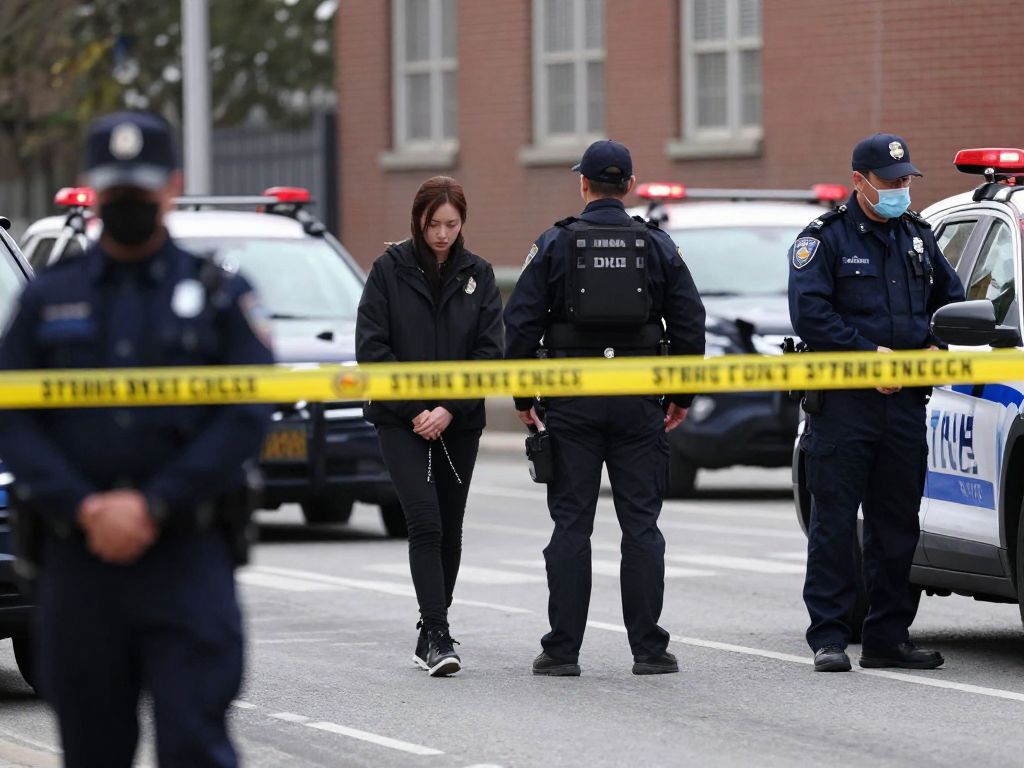News Summary
Wimbledon faced embarrassment due to a malfunction in its electronic line-calling system during the fourth-round match between Sonay Kartal and Anastasia Pavlyuchenkova. The system was accidentally turned off, leading to critical missed calls that spurred frustration on the court. Despite the controversy, Pavlyuchenkova overcame this blunder and won the match, although it reignited debates about the reliability of automated line-calling technology in tennis. Calls for improved oversight and possible integration of video checks were raised as players seek enhanced accuracy in officiating.
Wimbledon Apologizes for Line-Calling Blunder That Affected Kartal vs. Pavlyuchenkova Match
During an intense fourth-round match at Wimbledon, organizers were left feeling embarrassed after a significant malfunction in the **electronic line-calling system** caused some confusion and frustration. This unexpected hiccup took center stage during the showdown between Sonay Kartal and Anastasia Pavlyuchenkova.
It all started on **Centre Court**, where the electronic line-calling system, a much-touted addition to this year’s tournament, was unintentionally turned off. This little mishap led to three missed calls in one crucial game. Can you imagine the tension in that moment?
Pavlyuchenkova voiced her feelings after a missed call on a backhand shot by Kartal. She felt a game she had been working hard for was essentially **“stolen”** from her with such an error. When Pavlyuchenkova spotted the ball sailing long, she instinctively called for a halt to play, prompting chair umpire Nico Helwerth to step in and investigate the situation.
The All England Club quickly clarified that the malfunction occurred because the electronic system was **“deactivated on the point in question”** due to what they described as **“operator error”**. The error stemmed from the server’s side of the court, which meant that three crucial calls went undetected. Talk about a tough break!
As tensions mounted, Helwerth managed to call two of those missed calls himself before Pavlyuchenkova pointed out the issue. Under the rules, if the automated system fails, it’s up to the chair umpire to step in and make the call. If there’s still uncertainty, they are to **“replay the point”**. So, Helwerth decided to replay the point in question, allowing Kartal to grab a 5-4 lead in the match.
In a twist of fate, Pavlyuchenkova ultimately emerged victorious in the match, which somewhat dimmed the impact of the earlier malfunction. However, she did not hide her frustration over the umpire’s decision to replay the point rather than call it out. It must have been particularly galling for her when Helwerth later admitted he had seen the ball out but chose not to act on it in that moment.
This incident has put a bit of a spotlight on the new **automated line-calling system** at Wimbledon, drawing scrutiny from various players who have expressed their concerns about its reliability. Prominent players like Emma Raducanu and Belinda Bencic have openly questioned the technology, citing doubts over its accuracy, which is indeed a big deal in a sport where every point counts.
Debbie Jevans, chair of the All England Club, mentioned that this technology was introduced because **“the players wanted it”**. While she acknowledged that improvements must be made in its processes, it seems like there is still a long way to go. In fact, Pavlyuchenkova suggested that perhaps tennis should consider adopting **video checks** like football, which would allow for a structured review of critical calls. An idea many could get behind!
This incident has ignited a larger conversation about the accuracy of automated line-calling, especially since this is its **first year** in use at Wimbledon. Former Wimbledon champion Pat Cash was particularly vocal, criticizing the chair umpire for not overriding the machine’s call and emphasizing the umpire’s essential role in the game.
The electronic line-calling system has already been implemented in other major tournaments, like the *US Open* and *Australian Open*, where it has replaced traditional line judges. While the All England Club expressed confidence in the technology, it remains clear that this particular incident was a result of human error, serving as a notable lesson for the future.
As the tournament continues, all eyes will be watching closely — not just the players on the court but also the people behind the scenes, as they strive to improve and maintain the integrity of such an esteemed event.
Deeper Dive: News & Info About This Topic
- BBC Sport: Wimbledon Apologizes for Line-Calling Blunder
- Wikipedia: Tennis
- BBC News: Match Controversies in Sports
- Google Search: Automated Line-Calling System
- BBC News: Technology in Sports
- Encyclopedia Britannica: Sports – Tennis

Author: STAFF HERE PHILADELPHIA WRITER
The PHILADELPHIA STAFF WRITER represents the experienced team at HEREPhiladelphia.com, your go-to source for actionable local news and information in Philadelphia, Philadelphia County, and beyond. Specializing in "news you can use," we cover essential topics like product reviews for personal and business needs, local business directories, politics, real estate trends, neighborhood insights, and state news affecting the area—with deep expertise drawn from years of dedicated reporting and strong community input, including local press releases and business updates. We deliver top reporting on high-value events such as Mummers Parade, Philadelphia Flower Show, and Thanksgiving Day Parade. Our coverage extends to key organizations like the Greater Philadelphia Chamber of Commerce and United Way of Greater Philadelphia, plus leading businesses in telecommunications, food services, and healthcare that power the local economy such as Comcast, Aramark, and Children's Hospital of Philadelphia. As part of the broader HERE network, we provide comprehensive, credible insights into Pennsylvania's dynamic landscape.





